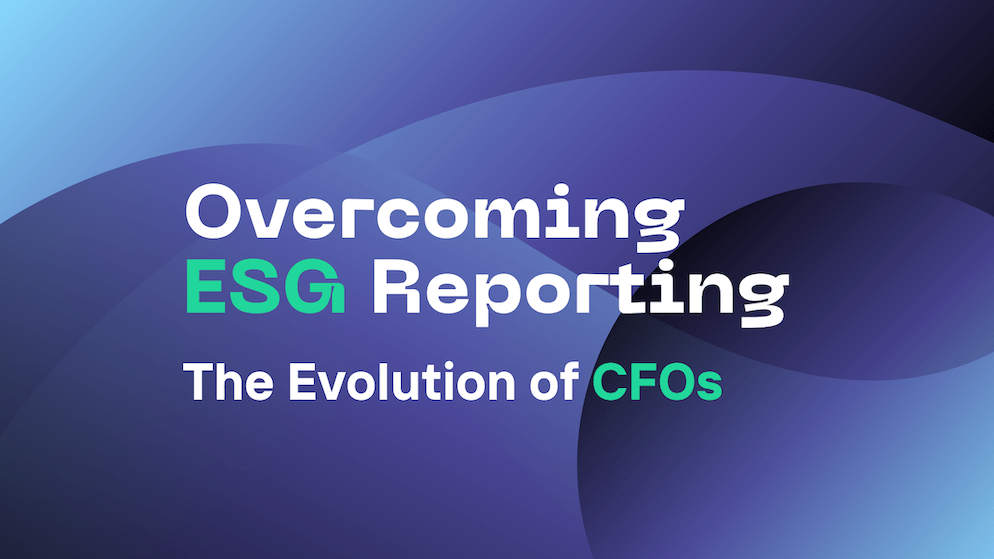Last updated on June 14th, 2025

In today’s fast-paced business environment, the role of Chief Financial Officers (CFOs) is in the middle of a major transformation. CFOs are no longer limited to the realm of numbers and financial statements, as they are now stepping into the role of strategic leaders in several areas, one of which includes improving ESG reporting.
The latest report of Genpact and HFS Research highlights the increasing importance of CFOs in steering business strategy through data and technology.
In the past, CFOs were mostly focused on accounting, budgeting, and financial reporting. According to the Genpact and HFS Research report, modern CFOs are more and more starting to embrace strategic leadership roles, a transition that is motivated by the need to manage a rapidly changing business landscape where data and technology play pivotal roles.
Moreover, Genpact and HSF Research’s report states that at the core of this transformation is the “triple-A trifecta”—AI, analytics, and automation. In other words, CFOs are starting to leverage these technologies to drive growth, streamline operations, and improve decision-making.
Consequently, by adopting AI, analytics, and automation, CFOs are becoming better equipped to predict trends and develop even more effective financial strategies, especially since Artificial Intelligence (AI) has revolutionized the finance sector and with that, its function.
This automatically pushes CFOs to collaborate with Chief Information Officers (CIOs) in order to implement AI across the company. This intertwined collaboration makes sure that AI initiatives lead to more informed decision-making and boost business outcomes, which is in alignment with the company’s general strategy.
And this is not limited to the Chief Information Officers, as another key aspect of the modern CFO’s role is maintaining communication across all departments of the company. By promoting teamwork and exceptional communication, CFOs can align operational and financial goals, an approach that enhances processes and improves the company as a whole.
Generative AI, data analytics, and machine learning are transforming finance departments. Thanks to advanced technologies such as AI and machine learning, CFOs are able to automate day-to-day tasks, predict future trends, and gain better insights from data.
More specifically, the new role of CFOs will include a position known as “data orchestrator”, and this entails ensuring efficient data management and updating the data collection processes to boost performance.
This means that it is up to CFOs to initiate conversations with upper-management individuals from other departments to understand the collected data and learn how it can be used to benefit the company. This inter-departmental collaboration and communication are key for creating a combined data strategy.
Yet another of the new, big responsibilities for CFOs is the process of reporting and ESG, i.e. collecting sustainability data. As a result of the new and emerging regulations on Environmental, Social, and Governance (ESG) reporting, one of the most important duties of CFOs is to ensure that their organizations are ready to report on opportunities and sustainability risks.
One recent report conducted by Accenture states that only 22% of CFOs know how to handle sustainability reporting. Stephanie Jamison, Senior managing director at Accenture, stated the challenges that CFOs face in this department and highlighted the steps they should take to get ready for this crucial aspect.
As the role of CFOs evolves, so does it impose even more comprehensive implications for companies. The only way for CFOs to stay ahead of the curve is by constant adaptation and continuous learning, which is the only way to stay on top of crucial segments such as technology adaptation, data management, and strategic leadership.
The quicker CFOs embrace this fast-paced evolution of their profession, the better the chances for success not just on a personal level, but for the organization as a whole as well.





